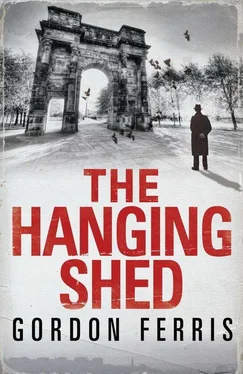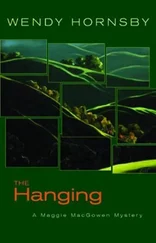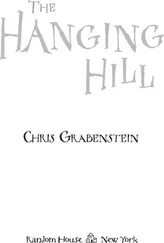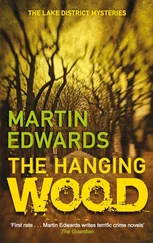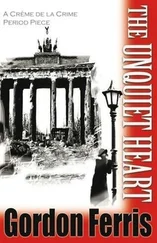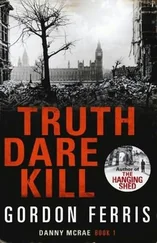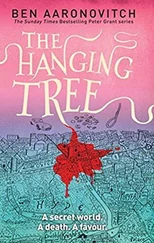Gordon Ferris - The Hanging Shed
Здесь есть возможность читать онлайн «Gordon Ferris - The Hanging Shed» весь текст электронной книги совершенно бесплатно (целиком полную версию без сокращений). В некоторых случаях можно слушать аудио, скачать через торрент в формате fb2 и присутствует краткое содержание. Жанр: Триллер, на английском языке. Описание произведения, (предисловие) а так же отзывы посетителей доступны на портале библиотеки ЛибКат.
- Название:The Hanging Shed
- Автор:
- Жанр:
- Год:неизвестен
- ISBN:нет данных
- Рейтинг книги:5 / 5. Голосов: 1
-
Избранное:Добавить в избранное
- Отзывы:
-
Ваша оценка:
- 100
- 1
- 2
- 3
- 4
- 5
The Hanging Shed: краткое содержание, описание и аннотация
Предлагаем к чтению аннотацию, описание, краткое содержание или предисловие (зависит от того, что написал сам автор книги «The Hanging Shed»). Если вы не нашли необходимую информацию о книге — напишите в комментариях, мы постараемся отыскать её.
The Hanging Shed — читать онлайн бесплатно полную книгу (весь текст) целиком
Ниже представлен текст книги, разбитый по страницам. Система сохранения места последней прочитанной страницы, позволяет с удобством читать онлайн бесплатно книгу «The Hanging Shed», без необходимости каждый раз заново искать на чём Вы остановились. Поставьте закладку, и сможете в любой момент перейти на страницу, на которой закончили чтение.
Интервал:
Закладка:
‘Brodie it is. Are you going to try to see Father Cassidy now? Leave your case and I’ll take it back with me.’
‘Sure?’
She pointed at the corner. She scribbled her own address on a sheet of paper, together with the numbers of the trams that ran by. It was further into the city and up on the smart hillside of Kelvingrove Park. Very nice. I left her gazing at her piles of paper as though by sheer force of will they would file themselves.
ELEVEN
The Gorbals were legendary. In Kilmarnock, among the private pink and red sandstone houses that laced the better streets, the very word was synonymous with dirt and degradation. Even the working class of Kilmarnock, my class, in our roughcast council estates, gazed down with shaking head on their brethren just up the Glasgow road. The worst waster in the most run-down part of Kilmarnock clung to his illusion of being a rung above his counterpart south of the Clyde – a speculative ranking based on the size and numbers of rats patrolling the outside toilets.
For really it was only a question of scale. You’d find TB, rickets, polio and malnutrition in any sizeable Scottish town. It was just that those Glasgow wastelands stretched over a quarter of central Glasgow and were as densely packed and aromatic as a giant box of herring. And whereas Kilmarnock had its fair share of louts ready for a rammy on a Friday night, the Gorbals were infested with razor-wielding gangs like the Beehive Boys. If disease didn’t get you, a knife would. In the Kilmarnock Standard we’d read of bottle fights at the Glasgow dance halls and knew that there would be Gorbals’ thugs behind it; yet taking a tram ride through the area with your eyes part closed would have left the impression of wide streets and fine Victorian sandstone buildings, a township that should have turned out model citizens.
A closer look uncovered the deep problems: cobbled streets full of patched holes and covered in filth because the Corporation dustmen couldn’t be persuaded to visit without an armed escort; families living ten to a room; sewage systems literally bursting at the seams; and mass unemployment and illiteracy. For the last hundred years the Gorbals had been a magnet for the dispossessed. Jews fleeing Russian pogroms, Highland clearances, Irish tattie famines, and lately, Nazi persecution.
I saw the bad side first hand in the thirties when I was drafted in to help a team of detectives from Southern Division in Craigie Street track down a gang of rapists terrorising the streets. They’d wait for a gaggle of lassies to come home from the dance halls – the jigging – and pick off one of them as she entered the dark close of her tenement. There was enough amorous activity going on in every entry across the Gorbals on a Thursday night (winching night) for muffled shouts and evil grappling to go unnoticed – until the morning and the girl was found battered, weeping and bloody in the stairwell.
But my abiding memory was the stench in the worst of the closes. The smell of urine and rubbish. The hot, steamy reek of humanity piled on top of each other in the houses themselves. Cooking, defecating, procreating, fighting: like a troop of Neanderthals.
And yet, and yet…
If you looked past the gang warfare, the drunks and the no-users there was a pride and a dignity about so many of the people, especially the women, the mothers. Aged thirty and looking sixty after rearing eight weans, she should have given up long ago. Instead she’d drag her kids to the kirk, steal a shilling from her man’s drinking money for a few ribbons for her daughter’s sixteenth birthday, stitch and mend clothes till there were more mends than original. And stand with blackened eye and bruised mouth, refusing to bring charges against her drunken husband; instead helping him home from the nick to start the cycle all over again.
And they’d dream, these stubborn women, they’d dream of one day walking out of the Gorbals. A wee place of their own, maybe down by the coast, at Irvine, or Saltcoats. Or if they couldn’t make it themselves, then maybe one of the kids would get a trade, break free, allow them to visit them in their wee hoose. That would be grand. I wondered how Fiona had got used to it. Would she stick around now?
We Protestants attended the kirk. The Catholics went to the chapel. This Gorbals chapel had been built of the same red sandstone as every other building in the area. Like them it had acquired a black sheen of soot and grime blowing in from the chimneys and the shipyards and the factories around the city. The blast furnaces of the Dixon’s Blazes just a mile away belted out enough fire and brimstone, night and day, to have smeared an inch coating over the entire Hutchesontown division every week. Even cleaned up, this chapel was no cathedral, just a simple pile of stones with a cross atop its peaked roof and some undistinguished stained-glass windows on its facade.
Inside was different. It was always a shock for a wee boy who’d grown up in the austerity of the bare wood and plaster of a Presbyterian church to be confronted with bloody icons and shimmering light from mass candles. The whole place looked like a fairy grotto to my eyes, though the scenes of blood and torment on the glowing glass screens were a far cry from Neverland. Why is suffering so attractive to the godly? We shiver at tales of Aztec priests and their penchant for gory offerings. But at the bloody heart of all Christian sects is the notion that God demanded the sacrifice of his son. As painfully as possible. I remember getting my ears clipped in Boys Brigade bible class for questioning one of the scriptures. How did it go? For God so loved the world, that he gave his only begotten Son, that whosoever believeth in him should not perish, but have everlasting life. Then he arranged for him to bleed to death on a cross for the delectation of the crowds. The minister shut me up with a pat on the head and a promise that I’d understand when I was bigger. Maybe I needed more time.
I made my way nervously down the aisle, not knowing whether to call out or sing hallelujah. The chapel seemed empty – apart from its gaudy spirits. I neared the altar and stood feeling sinful (which shows how the bloody thing works) while Jesus hung there silently censuring my failure to genuflect or light a candle.
‘Can I help you?’
The strong voice came from the side. A man was walking towards me, wearing an ankle length black cassock surmounted by a wooden cross on a heavy chain. A dog collar completed the outfit. He was in his late fifties or early sixties, about my height but thin as a blade. His hair was a grey brush swept back from a face that registered openness and warmth in contrast with the accoutrements of his demanding creed.
‘Is it confession you want, my son?’ he asked, drawing closer. His Irish accent became more pronounced.
‘I’m not of your faith…’ I reached for a word that didn’t make me sound as though I owed him obeisance. I failed, ‘Father.’
‘We all need to unburden ourselves sometimes. I am happy to listen. You look troubled.’
‘I am troubled. For a friend. Hugh Donovan.’ I watched his face. The smile slowly dimmed to be replaced by a mouth stretched by concern.
‘Then you must be Douglas Brodie. Please follow me.’
The vestry was much less gaudy than the body of the chapel. Bare, apart from the obligatory man being crucified, some books on a shelf, a small desk and two beaten-up armchairs. We sank into them. He leaned forward, his cross swinging out over his knees.
‘He said you would come, Douglas. May I call you Douglas?’
No you may not. ‘I’m used to Brodie. And…?’
He smiled. ‘Patrick will do. This is a terrible business. I never expected it to go this way.’
Читать дальшеИнтервал:
Закладка:
Похожие книги на «The Hanging Shed»
Представляем Вашему вниманию похожие книги на «The Hanging Shed» списком для выбора. Мы отобрали схожую по названию и смыслу литературу в надежде предоставить читателям больше вариантов отыскать новые, интересные, ещё непрочитанные произведения.
Обсуждение, отзывы о книге «The Hanging Shed» и просто собственные мнения читателей. Оставьте ваши комментарии, напишите, что Вы думаете о произведении, его смысле или главных героях. Укажите что конкретно понравилось, а что нет, и почему Вы так считаете.
